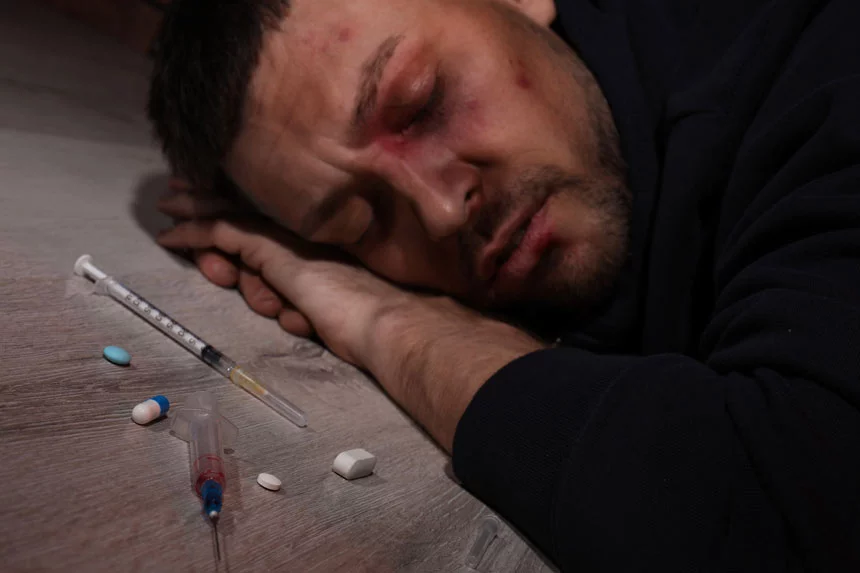GLOSSING OVER THE DANGERS OF COCAINE
Even in Hollywood, where the crudest, depraved, and most unacceptable activities are glorified, most hard drugs are presented in a negative light. We have seen this time and time again when it comes to heroin in movies like “Requiem for a Dream” and meth-using movies like “Spun.”
However, no matter where you look, as one of the most infamous drugs within the addiction community, cocaine always seems to be a glamorized substance. However, those who have battled cocaine abuse and won would end up telling you differently.
This is what makes cocaine such a dangerous drug. Especially in today’s society, where news of opioid and meth overdose deaths are dominating the headlines, cocaine is quietly being overlooked despite the various negative effects it can have on a person’s life.
If left unchecked, this lack of awareness can lead a whole generation of young people into the hands of substance abuse. The bottom line is, there just is not enough awareness regarding the dangers of cocaine abuse, specifically when it comes to the risk of cocaine overdose.
HOW DOES COCAINE AFFECT THE BODY?
Derived from the Coca plant native to South America, cocaine is a very powerful and highly addictive drug due to its effect on the central nervous system. Cocaine use drastically increases the brain’s dopamine levels, the chemical primarily associated with movement and reward.
Cocaine stops dopamine from being recycled, causing a build-up of this chemical and stopping normal communication within the brain. Over time, this will encourage reward-seeking behavior associated with continuous cocaine use.
As a tolerance and eventual dependence on this drug is developed, the user will have to begin taking cocaine in higher and more frequent doses to achieve a desired effect. Not only will this form an addiction to cocaine, but it will also increase the person’s risk of overdose.
CAN YOU OVERDOSE ON COCAINE?

Many people are under the impression that you cannot overdose on cocaine. However, this could not be further from the truth. As all the attention has been on opioids and, more recently, crystal meth – cocaine is still as deadly as ever.
In all reality, cocaine and meth are neck and neck when it comes to drug overdose deaths, with both hovering somewhere between the 12,000 and 15,000 deaths-per-year mark since as recently as 2016.
Cocaine is far from a glamorous or safe drug, but you may not hear much about these overdose deaths on the news. These gross missteps in terms of public awareness leave family members, friends, and other mentor figures responsible for instilling the dangers of drug abuse to those who are most vulnerable.
THE RISE OF COCAINE OVERDOSE DEATHS IN THE U.S.
According to the National Institute on Drug Abuse (NIDA), cocaine-related deaths have steadily increased from 5,419 in 2014 to a staggering 19,447 in 2020. Many of these, unfortunately, could have been preventable with immediate medical attention.
The main driver of these cocaine overdoses have involved other drugs. This includes cases in which cocaine was mixed with multiple drugs, the most common of which are typically synthetic opioids or alcohol.
With these rising cocaine overdoses, it has become more important than ever to raise awareness towards the causes and dangers of substance abuse, and increase accessibility to professional addiction treatment services.
WHAT CAUSES A COCAINE OVERDOSE?
The risk of overdose is significantly increased when someone takes cocaine in large doses. What will constitute too high a dose will differ for each person based on their physical health and other biological factors. Generally, the only way to safely take cocaine is to avoid using it all.
The severity of a cocaine overdose can vary based on several risk factors, including the cocaine purity, how much cocaine was used, the method of administration, and whether a person is mixing cocaine with other substances.
If you or a loved one struggles with cocaine addiction, it may be helpful to know the symptoms of cocaine overdose. Would you know what to do if someone was displaying signs of a cocaine overdose? Do you know the signs to watch out for?
COCAINE OVERDOSE SIGNS & SYMPTOMS

Those who are experiencing cocaine toxicity are in an extremely dangerous situation, especially considering the potential for heart damage. One of the greatest risks associated with taking toxic levels of cocaine is the risk of experiencing heart attacks or other heart-related issues.
During a cocaine overdose, heart rate and blood pressure spike. If help is not sought immediately, these levels can become high enough to lead to additional complications. It is important to be aware of other cocaine overdose signs so you can get help before it’s too late.
Additional physical and psychological symptoms of a cocaine overdose will often include:
- Enlarged pupils
- Intense sweating
- Labored breathing
- High body temperature
- Clammy skin
- Loss of color
- Convulsions
- Twitches or tremors
- Complaints of chest pain/numbing in one arm
- Unconsciousness
- Dry mouth
- Respiratory depression
Because these symptoms can be life-threatening, seeking emergency medical treatment is critical during a potential cocaine overdose. While the starting point for cardiac arrest is not yet conclusive, in certain situations, this risk may be increased depending on prior health conditions and the amount of cocaine ingested.
In extreme cases, more severe physical effects may occur from a cocaine overdose, including significant damage to a person’s gastrointestinal tract, organ failure, and cerebral bleeding; all of which can cause permanent damage, including death.
SYMPTOMS OF COCAINE OVERDOSE BY THE STAGES
When it comes to the development of cocaine overdose symptoms, these may not all occur at the same time. Typically, this process will carry over the course of four general stages of overdose, each presenting their own mental and physical signs of overdose.
1. Stage One of Cocaine Overdose
When someone takes too much cocaine, they will experience an initial rush of euphoria and energy. While this may produce the same effects as their normal drug use, this high may feel more intense than what they have previously experienced.
2. Stage Two of Cocaine Overdose
As these more pleasant initial feelings begin to fade, the user may begin to find it difficult to breathe and experience intense sweating. Their pulse will steadily begin to increase, as well as their blood pressure.
3. Stage Three of Cocaine Overdose
Stage three of most cocaine overdoses is associated with the development of psychological signs of this life-threatening side effect. This may include rising anxiety and feelings of panic. At this point, chest pains or numbness throughout the body may also be experienced.
4. Stage Four of Cocaine Overdose
In the final stage of cocaine toxicity, the person suffering may experience an increase in their physical symptoms, such as high body temperature, nausea and vomiting, or foaming at the mouth.
This may be followed by tremors or convulsions, as well as their segue into cardiac arrest. Once this point of overdose occurs, the affected person will need to receive immediate medical attention in order for their overdose symptoms to be properly addressed.
HOW DO COCAINE OVERDOSE SYMPTOMS FEEL?

What does a user feel like when they are going through a cocaine overdose? Not always will the user understand they are going through an overdose. Many times, they will be physically unable to convey how they feel.
During a cocaine overdose, individuals may experience a wide range of physical and mental health effects within a short period of time. These may be more severe if they used cocaine with other drugs. Some of the most commonly experienced symptoms include:
- Tightness in chest.
- Moderate to severe chest pain.
- Extreme anxiety and distress.
- Difficulty breathing.
- Disassociation and difficulty remaining focused or keeping a train of thought.
- Difficulty maintaining or complete loss of consciousness.
IS COCAINE OVERDOSE COMMON?
Cocaine overdose is probably more common than you think. Using data from last year regarding drug use, it’s estimated that almost 20% of individuals suffering from cocaine abuse disorder end up in the emergency room for a possible overdose. This ends up totaling somewhere around 110,000 users per year.
Out of these 110,000 users, an average of about 15,000 will end up losing their lives to a cocaine overdose. Except for the number of current users, the statistics surrounding cocaine hospitalization and overdose deaths are nearly identical to methamphetamine numbers in the same category.
Because cocaine overdose is a significant threat, it is important to understand what to do in the event that you or someone you know is experiencing an overdose.
WHAT TO DO FOR SOMEONE DURING A COCAINE OVERDOSE
If you or someone you know is suffering from a cocaine overdose, it is important to remain calm and exercise proper judgment. The first thing you will want to do is contact 911 to ensure an ambulance is already on the way. Secondly, you will need to assess the situation.
Are you able to determine what stage of overdose they are currently in? Is the individual able to remain coherent or awake? If the individual is still alert and conscious, ask them how they are feeling. Sit and talk with them to help keep them focused on your voice and not the fact that they have ingested too much cocaine.
The goal is to keep their anxiety at bay, as panic can increase their blood flow, allowing more of the drug to reach vital areas of their body more quickly. If they are unconscious or nearing that point, do not throw water on them or slap them. You might have seen this in movies, but it is not the right thing to do in real life.
Instead, gently turn the person on their side and put a pillow under their head. This will stop them from choking if they end up vomiting. Monitor them closely while you wait for EMS to arrive. Ensuring they are still breathing and have a pulse is the best thing you can do for them until medical personnel can take over.
ACTIONS TO TAKE DURING A COCAINE OVERDOSE

While you are waiting for EMS, you need to begin administering CPR if they suddenly stop breathing. You need chest compressions to keep their blood pumping and better ensure they are breathing properly.
Remember, it only takes about three minutes without oxygen to suffer brain damage. Typically, this is what causes death in many cases of drug overdose. It is not the direct toxicity of the drug itself, but rather the lack of oxygen for too long of a period.
In the case of a cocaine overdose, however, many of these deaths occur as a result of a heart attack. Not every cocaine overdose leads to a heart attack, though. This depends on how strong the dose of the drug is and the health of the user’s heart.
The chances are high that if the individual has a strong cardiovascular system, they may not suffer from a heart attack. This gives them extremely strong odds of making a full recovery. However, there is another risk of overdose that must be taken into account.
As the opioid epidemic continues to wreak havoc throughout the nation, a major issue putting cocaine users in harm’s way of experiencing deadly side effects from their substance use is the rising popularity of another drug known as fentanyl.
THE RISKS OF FENTANYL AS A COCAINE ADULTERANT
There is currently an extremely high number of substances discovered on the black market that contain high doses of fentanyl. This is particularly alarming, especially considering that most of the users have no idea their drug of choice may be adulterated with this deadly opioid.
Various batches of different substances have been tested and exhibit the same results – from cocaine to meth, marijuana, and ecstasy, they are all increasingly testing positive for fentanyl. This is causing another surge in overdose deaths of all age groups.

What makes this scarier is the fact that these individuals have no idea these drugs are laced with the powerful opioid. In many cases, people in their company have no idea how to remedy the situation because of the unexpected results.
While it is currently unclear why doses of fentanyl are being placed in other drug supplies, many people have their theories. One theory to consider is the attempt to force users into a physical dependency on fentanyl.
Once this happens, individuals must consume the drug to even be able to function normally. This would certainly be a way to ensure that clients return to buy the same batch, over and over again.
Regardless of the reasoning, this proves the ruthlessness and lack of remorse the organizations that manufacture and distribute these drugs have, and adds another danger to cocaine use in the form of an increased risk of overdose and addiction.
LONG TERM EFFECTS OF COCAINE USAGE
In addition to a potentially fatal overdose, individuals who engage in long-term cocaine usage face a potentially deadly list of psychological and physical side effects. These long-term negative consequences may include:
- Cardiovascular issues
- Skin conditions affecting the face
- Loss of nasal cartilage structure
- Increased risk of heart attacks and stroke
- Heart disease
- High blood pressure
- Anxiety/depression
- Paranoia/psychosis
Seeking professional substance abuse treatment services following a cocaine overdose is the best course of action. With the right help, users have a real shot at long-term recovery and successfully maintaining their sobriety.
IS LASTING RECOVERY FROM COCAINE ADDICTION POSSIBLE?
At Best Rehabs In Arizonas in Colorado and Arizona, we understand that lasting recovery takes a strong team with experience and compassion. This is exactly what we bring to the table.
Recovery isn’t easy – but nothing worth having ever is. We will be right there with you throughout your entire treatment process, ensuring your comfort and safety while providing you with the education and tools you need for lasting sobriety.
Your recovery is calling. Contact Best Rehabs In Arizona today to find out how we can help you start your journey to addiction treatment and achieve a full, successful recovery from the shackles of regular cocaine use.

